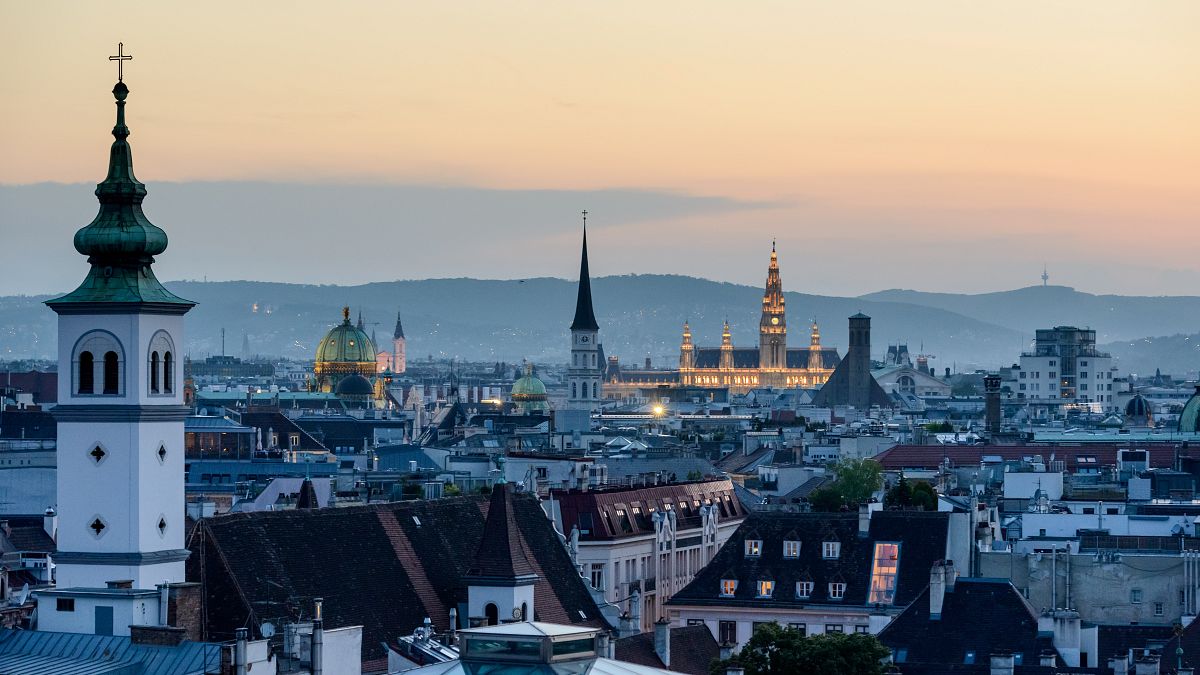By Aoife Barry
Welcome to Vienna: a city with an incredibly rich cultural history, which boasts beautiful parks and architecture, is home to major global companies, and offers a great work-life balance.
As the capital city of Austria, Vienna has an important position as the country’s largest city and is home to its cultural, political and economic centres.
It’s a place that is steeped in history and has so many positive factors going for it that this year it once again topped the rankings of the Economist’s annual Global Liveability Index.
What does “liveability” mean? Essentially, the Economist’s Intelligence Unit assesses which locations around the globe provide the best or worst living conditions, quantifying “the challenges that might be presented to an individual’s lifestyle in any given location”.
Every city is given a rating for over 30 factors across these five categories: stability, healthcare, culture and environment, education and infrastructure.
The ratings are both qualitative and quantitative, with in-house analysts and in-city contributors feeding into the qualitative side of things. This year, it covered 173 countries.
A winning combination
Vienna again reached the top spot because of its “winning combination of stability, good culture and entertainment, reliable infrastructure, and exemplary education and health services”.
The city is a regular at the top of this list with only the pandemic briefly causing it to slide down from the top position because its museums and restaurants faced restrictions.
The Austrian capital has been ranked highest in eight of the past bi-annual Economist surveys. One of its only downsides, says the publication, is “a relative lack of major sporting events”.
But that is a small price to pay to live and work in the city, which was home to groundbreaking and fascinating figures such as musicians Mozart and Beethoven, the ill-fated, free-spirited Empress Sisi, artist Gustav Klimt, and groundbreaking psychoanalyst Sigmund Freud. Looking to make a career move in Austria?
Looking to make a career move in Austria? Check out the Euronews Jobs Board
A business hub
For workers, Vienna is a great place to be based. Five weeks of holiday a year are standard across all employers and, according to 2022 Eurostat data, the average full-time salary in Austria is just over €45,000.
The Austrian government publishes a list of employee shortages in certain occupations, which is a great guide for workers about sectors where there might be vacancies. Power engineering, engineering and data processing all feature in the 2023 list.
Given its position in Europe, companies such as Siemens, IBM, Cap Gemini, Amazon, and Hewlett-Packard have long had offices in Vienna.
In part, that’s because of the quality of its workforce but it's also because its geographical position enables good business contacts in Eastern and Central Europe.
For employees, Austria has a progressive tax rate (0-50 per cent) where the more you earn, the more tax you pay. Employees and employers have to pay social insurance contributions – like sickness insurance and pension insurance.
Health insurance is compulsory in Austria if you’re in paid employment, as well as for most self-employed people and anyone can seek voluntary cover for health and pension insurance.
For LGBTQ+ workers, Vienna is a good choice too; it’s a city with a long history of supporting LGBTQ+ rights.
In fact, in 1998 the City of Vienna established the Viennese Anti-Discrimination Unit for Lesbian, Gay and Transgender Issues (WASt). Vienna describes itself as the “rainbow capital” of Europe and proudly celebrates its LGBTQ+ history.
History and culture
There’s no point basing yourself somewhere new if it’s all work and no play. Austria ranked 11th on the World Happiness Report 2022, so it’s clearly a positive country to live in.
If it’s an outdoorsy life that you’re after, the city has 14km of bike paths and an impressive urban planning history, with many parks where locals gather for picnics as they watch the world pass by.
Further afield, the Alps aren’t too far away for skiing trips and some of that fresh Alpine air. Given Austria’s location, there are also many options just across its borders for weekend trips in mainland Europe.
Coffee culture is a huge part of Viennese life and it has been for around 300 years, with people gathering before and after work in stunning cafés to drink a locally-produced blend, catch up with friends, read newspapers and decompress.
History nuts have a lot to explore in Vienna and can delve into its Roman and imperial past. There are also several museums with information on the First and Second World Wars like the Museum of Military History and the Jewish Museum.
Getting around the city is easy thanks to its underground, trams, trains and buses, including night bus lines and 24-hour underground transport at the weekends and during public holidays. If bikes or electric scooters are more your thing, you can rent those in the city too.
If you’re thinking of moving to Vienna for work, people who are citizens of other countries in the European Union or Switzerland can reside in Austria for more than three months if they are employed or self-employed.
Citizens of the United Kingdom don’t need a visa if they’re residing in Austria for up to three months but will need to apply for an Austrian Schengen Visa for anything longer than that. Looking for jobs in Vienna or Austria?
Check out the Euronews Jobs Board to help with your next career move






